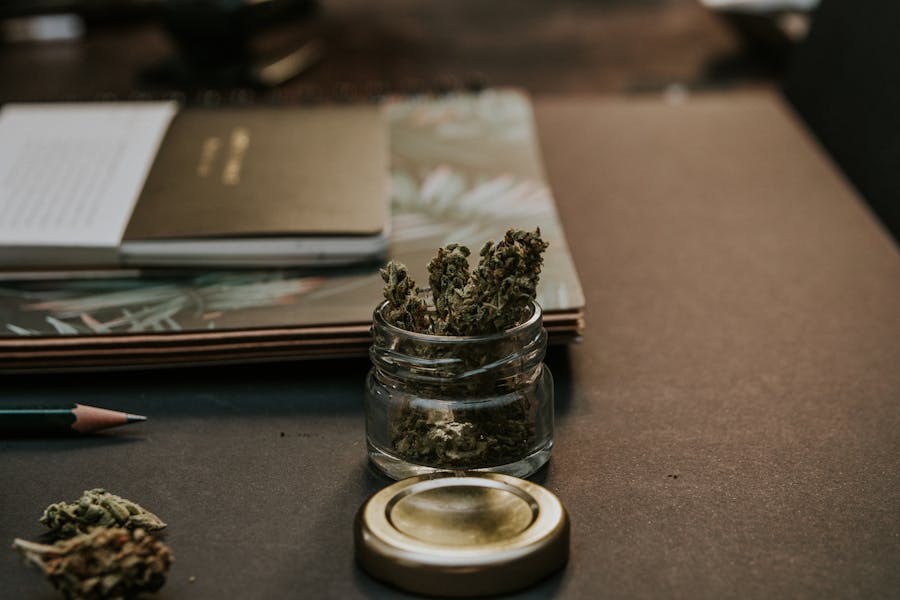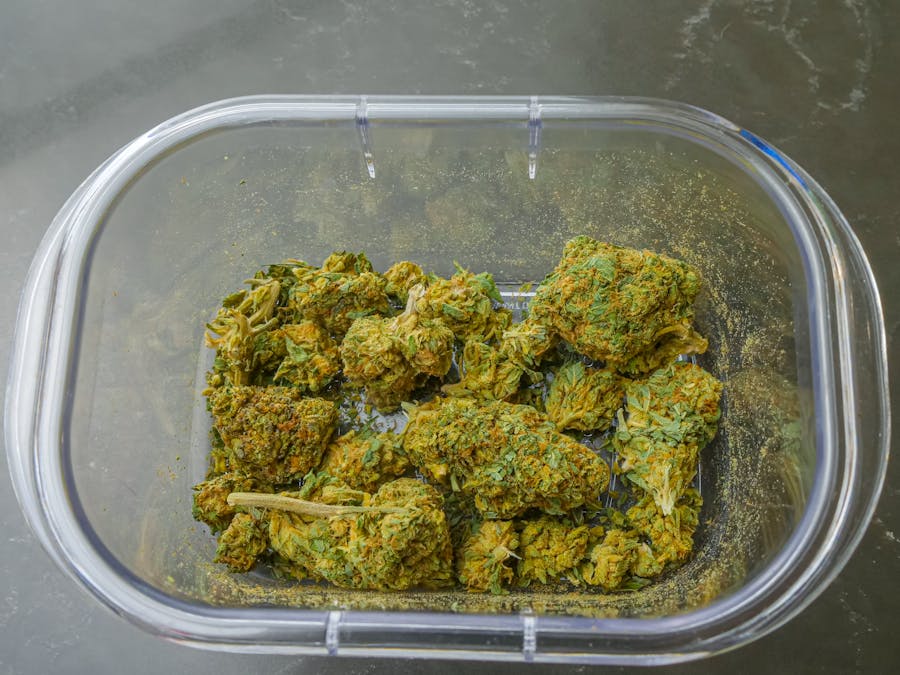
Marijuana Law Changes in Colorado: What You Need to Know
Overview
In 2012, Colorado became the first state to legalize recreational marijuana use. Since then, the state has been a trendsetter in the cannabis industry, implementing various laws and regulations. These laws have brought about new changes in Colorado's marijuana industry, including updated regulations on who can grow, manufacture, and sell marijuana products.
Changes to the Law
Recently, Colorado lawmakers passed House Bill 1317, which tightened regulations on packaging and labeling of marijuana products. Additionally, the bill established restrictions on the types of products that can be sold at dispensaries.
Another significant change has been the lowering of the legal limit for THC blood concentration while driving. The new limit is five nanograms of active THC per milliliter of blood.
What You Need to Know
This article will examine some of the most critical changes to Colorado's marijuana laws and their potential impact on users and industry insiders. Whether you're a marijuana enthusiast, medical patient or industry professional, staying up-to-date on Colorado's marijuana laws is essential.
Marijuana Law Changes in Colorado: What You Need to Know
Overview
In 2012, Colorado became the first state to legalize recreational marijuana use. Since then, the state has been a trendsetter in the cannabis industry, implementing various laws and regulations. These laws have brought about new changes in Colorado's marijuana industry, including updated regulations on who can grow, manufacture, and sell marijuana products.
Changes to the law
Recently, Colorado lawmakers passed House Bill 1317, which tightened regulations on packaging and labeling of marijuana products. Additionally, the bill established restrictions on the types of products that can be sold at dispensaries.
Another significant change has been the lowering of the legal limit for THC blood concentration while driving. The new limit is five nanograms of active THC per milliliter of blood.
Impact on consumers
As the cannabis industry continues to grow in Colorado, it is essential to stay informed about the impact of these changes on consumers. With the new packaging and labelling regulations, consumers will have access to more accurate information about the potency and contents of the products they purchase.
Moreover, the restriction on the types of products that can be sold at dispensaries may limit consumer choice, but it also ensures that only safe and regulated products are sold. By becoming more educated about the changing laws, consumers can make more informed choices about the products they consume.
Industry implications
These changes to the law also have significant implications for industry stakeholders. For example, dispensaries will need to reevaluate their inventory and ensure they are only selling products that fall within the new legal requirements.
Furthermore, the new regulations will require additional resources and investment by the industry to comply fully. This investment may provide opportunities for businesses to differentiate and stand out in a highly competitive industry. As such, it is imperative for businesses operating in the cannabis industry to stay up-to-date with the latest changes in the law and prepare for the evolving regulatory landscape.
Marijuana Law Changes in Colorado: What You Need to Know
Overview
In 2012, Colorado became the first state in the US to legalize the recreational use of marijuana. With the legalization, the cannabis industry has rapidly grown in the state, and as such, its laws and regulations have been subject to numerous changes.
Impact on the economy
The legalization of marijuana has had a significant impact on Colorado's economy, with substantial tax revenue generated by the industry. According to a study by the Marijuana Policy Group, the marijuana industry in Colorado was estimated to be worth $2.4 billion in 2015, with the state generating $135 million in taxes and fees.
As the industry continues to grow, it is anticipated that this figure will continue to increase. With the emergence of new regulations and laws, the industry's economic contribution to the state of Colorado will likely also see significant changes in the coming years.
Overall, as the cannabis industry continues to evolve in Colorado, it is vital for stakeholders to stay informed about these changes, and plan ahead to ensure compliance with the latest legal requirements.
Marijuana Law Changes in Colorado: What You Need to Know
Overview
In 2012, Colorado became the first state in the US to legalize the recreational use of marijuana. With the legalization, the cannabis industry has rapidly grown in the state, and as such, its laws and regulations have been subject to numerous changes.
Social implications
The legalization of marijuana has also had social implications in Colorado. From reducing crime rates to minimizing opioid use, the legalization of marijuana has been viewed as a means of promoting public health.
However, the legalization has also raised concerns regarding the impact of marijuana on public safety and health. As such, the law changes have been implemented not only to regulate the industry but also to address citizens' concerns about the drug's use.
The implications of the law on the social aspect of marijuana use in Colorado cannot be ignored. Over time, the impact of the changes in laws and regulations will become more evident, and additional considerations may need to be implemented to reflect public concerns.
Marijuana Law Changes in Colorado: What You Need to Know
Overview
In 2012, Colorado became the first state in the US to legalize the recreational use of marijuana. With the legalization, the cannabis industry has rapidly grown in the state, and as such, its laws and regulations have been subject to numerous changes.
Research and education
One of the most significant impacts of the marijuana laws in Colorado has been on research and education. The legalization has led to an increase in research on the effects of marijuana on public health, contributing to our understanding of its potential benefits and risks.
Furthermore, the implementation of the law changes has also led to the development of educational programs geared towards public awareness of the drug's effects. Such educational programs can help individuals make informed decisions about marijuana use and reduce the risk of misuse.
Investing in research and education can serve to help address public concerns about the use of marijuana while providing accurate and reliable information on the subject. Ultimately, this can help shape the trajectory of the cannabis industry in Colorado and beyond.
Marijuana Law Changes in Colorado: What You Need to Know
Overview
In 2012, Colorado became the first state in the US to legalize the recreational use of marijuana. With the legalization, the cannabis industry has rapidly grown in the state, and as such, its laws and regulations have been subject to numerous changes.
The future outlook
Looking towards the future, it is likely that the laws and regulations concerning marijuana in Colorado will continue to evolve over time. With changes in the political and social climate, the cannabis industry may see growth or decline. Some have already speculated that the federal legalization of the drug may occur in the coming years.
As such, staying informed about the latest developments in the law and regulations concerning marijuana in Colorado will be essential for anyone interested in the cannabis industry. Furthermore, adapting to changes in the industry will be vital for the industry stakeholders to ensure compliance with the law and stay ahead of the competition.
In conclusion, an understanding of the status of the marijuana laws in Colorado and the evolving nature of the cannabis industry is critical to those interested in the legalization of marijuana in the United States.
Marijuana Law Changes in Colorado: What You Need to Know
Overview
In 2012, Colorado became the first state in the US to legalize the recreational use of marijuana. With the legalization, the cannabis industry has rapidly grown in the state, and as such, its laws and regulations have been subject to numerous changes.
Final Notes
To summarize, this article has highlighted key points regarding the marijuana law changes in Colorado, their impact on the general population, industry stakeholders, and the economy. Here are the main points discussed in this article in brief:
1. Colorado was the first to legalize recreational marijuana use in 2012, leading the way for the cannabis industry.
2. Recent changes to Colorado's marijuana laws have targeted packaging and labeling regulations, types of products sold at dispensaries, lowering the legal limit for THC concentration while driving.
3. The legalization has had wide-ranging social implications, including crime reduction, public health promotions, and public safety concerns.
4. Investing in research and education can help address public concerns about the use of marijuana while providing accurate and reliable information on the subject.
5. Looking towards the future, it is likely that the laws and regulations concerning marijuana in Colorado will continue to evolve over time, with the federal legalization of the drug being a possibility.
Overall, the recent changes in Colorado's marijuana laws have been significant, with notable impacts on consumers, industry players, and the economy. As such, it is crucial to keep abreast of the latest legal requirements, industry trends, and research developments in the cannabis industry to ensure compliance and make informed decisions.
Marijuana Law Changes in Colorado: What You Need to Know
Overview
In 2012, Colorado became the first state in the US to legalize the recreational use of marijuana. With the legalization, the cannabis industry has rapidly grown in the state, and as such, its laws and regulations have been subject to numerous changes.
References:
- Bergman, R. L., & Heideman, P. W. (2011). Medical marijuana in the workplace: Challenges and management options for occupational health professionals. Journal of Occupational Health Psychology, 16(1), 1–7. https://doi.org/10.1037/a0021602
- Colorado Department of Revenue. (2020). Marijuana Enforcement Division. Retrieved from https://www.colorado.gov/pacific/enforcement/marijuanaenforcement
- Marijuana Policy Group. (2016). Market size and demand for marijuana in Colorado. Retrieved from https://www.colorado.gov/pacific/sites/default/files/Market%20Size%20and%20Demand%20Study%20-%20FINAL.pdf
This article has referenced essential sources that provide descriptions of the state's laws regarding marijuana. The sources used describe the challenges and management options for employers dealing with marijuana in the workplace. The Colorado Department of Revenue provides information about the regulations put in place to enforce the use of marijuana. Lastly, The Marijuana Policy Group conducted an analysis of the market size and demand for marijuana in Colorado, showing the drug's economic impact on the state.
Additional References:




